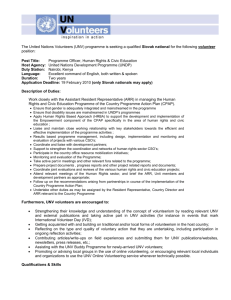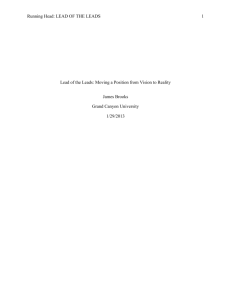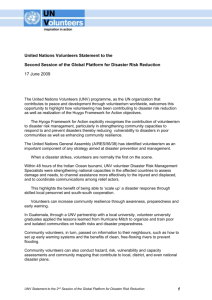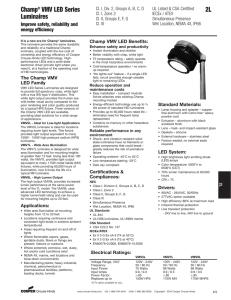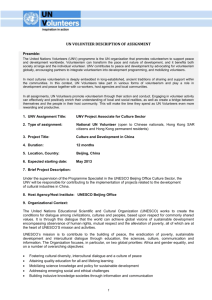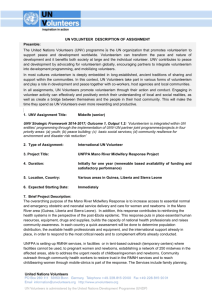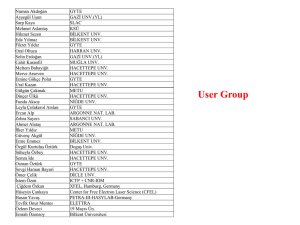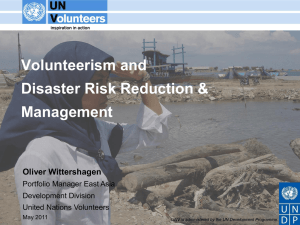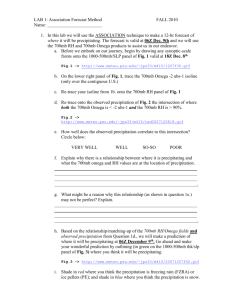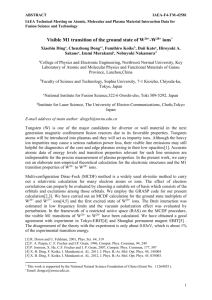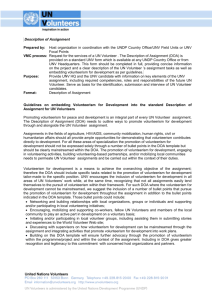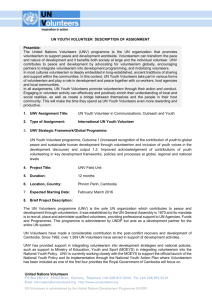UNV Specialist Interview: Field Work & Recruitment Insights
advertisement
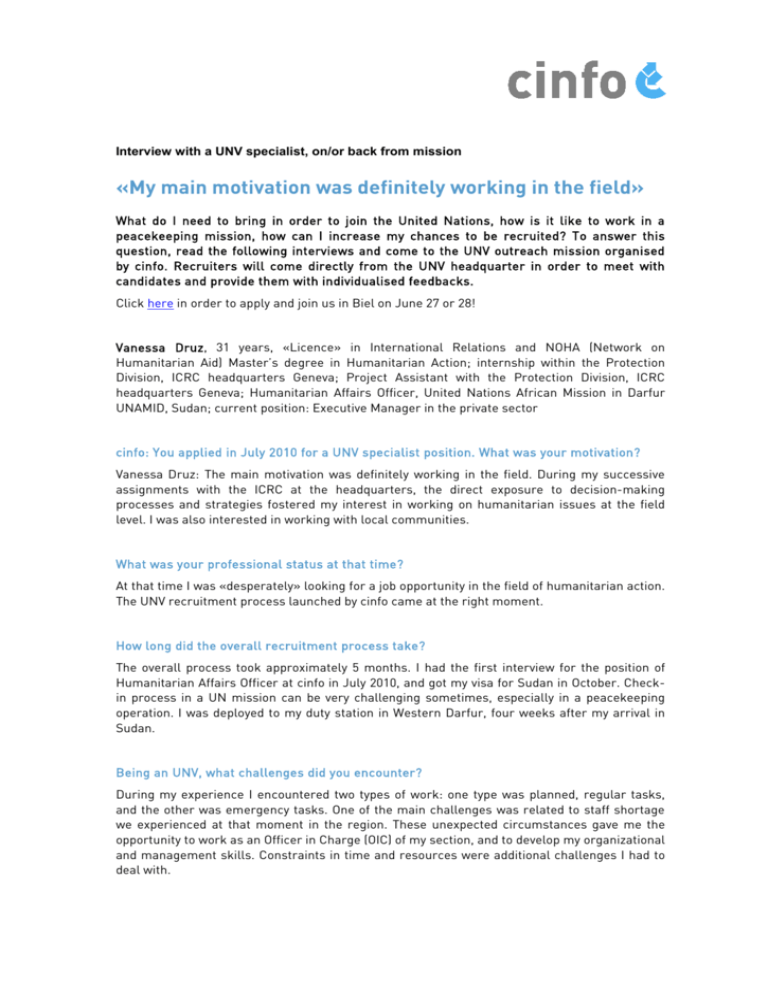
Interview with a UNV specialist, on/or back from mission «My main motivation was definitely working in the field» What do I need to bring in order to join the United Nations, how is it like to work in a peacekeeping mission, how can I increase my chances to be recruited? To answer this question, read the following interviews and come to the UNV outreach mission organised by cinfo. Recruiters will come directly from the UNV headquarter in order to meet with candidates and provide them with individualised feedbacks. Click here in order to apply and join us in Biel on June 27 or 28! Vanessa Druz, 31 years, «Licence» in International Relations and NOHA (Network on Humanitarian Aid) Master’s degree in Humanitarian Action; internship within the Protection Division, ICRC headquarters Geneva; Project Assistant with the Protection Division, ICRC headquarters Geneva; Humanitarian Affairs Officer, United Nations African Mission in Darfur UNAMID, Sudan; current position: Executive Manager in the private sector cinfo: You applied in July 2010 for a UNV specialist position. What was your motivation? Vanessa Druz: The main motivation was definitely working in the field. During my successive assignments with the ICRC at the headquarters, the direct exposure to decision-making processes and strategies fostered my interest in working on humanitarian issues at the field level. I was also interested in working with local communities. What was your professional status at that time? At that time I was «desperately» looking for a job opportunity in the field of humanitarian action. The UNV recruitment process launched by cinfo came at the right moment. How long did the overall recruitment process take? The overall process took approximately 5 months. I had the first interview for the position of Humanitarian Affairs Officer at cinfo in July 2010, and got my visa for Sudan in October. Checkin process in a UN mission can be very challenging sometimes, especially in a peacekeeping operation. I was deployed to my duty station in Western Darfur, four weeks after my arrival in Sudan. Being an UNV, what challenges did you encounter? During my experience I encountered two types of work: one type was planned, regular tasks, and the other was emergency tasks. One of the main challenges was related to staff shortage we experienced at that moment in the region. These unexpected circumstances gave me the opportunity to work as an Officer in Charge (OIC) of my section, and to develop my organizational and management skills. Constraints in time and resources were additional challenges I had to deal with. Looking back, what did you learn from your experience? I had a fulfilling experience, both professionally and personally. Although some frustrations came out because of lack of time to perform my duties, I have learned how to set priorities and to take quick action and response to unexpected situations. Which impact had your UNV deployment on your further career? Working in the field, especially in emergency situations, opens up interesting job opportunities. At the end of my assignment, I was offered different jobs to continue working in the humanitarian sphere. However, for personal reasons, I decided to not extend my contract with the United Nations. What advices would you give to people interested to volunteer their skills with UNV? Perseverance is a key-word when you are volunteering. Facing many challenges in the field, as a UN volunteer you will sometimes feel discouraged and lacking of support from your hierarchy. Do not give up, stay calm and keep in mind what reasons led you to commit to volunteerism. Séverine Giroud, 32 years, Master in Social Sciences and Master of Advanced Studies in Globalisation and Sustainable Development (DESS: Diplôme d’Etudes Supérieures Spécialisées); UNV with World Food Programme (WFP) in Mali as programme assistant for Mother Child Nutrition Programme (1 year); Project Officer with UNICEF in Bosnia Herzegovina (6 months); UNV with WFP in Indonesia as Head of Sub-Office in Timor (2 years); consultant with WFP in Indonesia as Head of Sub-Office in Papua (9 months); current position: consultant with WFP as roaming/project officer for Mother Child Nutrition in Timor Leste (Start May 1, 2013). The core of the job will be to coordinate four sub-offices and initiate the hand-over for the government. cinfo: You applied in 2008 for a UNV specialist position. What was your motivation? Séverine Giroud: My interest in international cooperation started during my studies and I chose my second master to specialise in that field. To complete the master, I had to get an internship in an international organisation. I was lucky to start with WFP in Geneva as intern in communication for 6 months. What was your professional status at that time? I got my first UNV contract, the one as programme assistant in Mali, a few months after my second master. I did not have much experience beside the 6 months internship with WFP as communication intern and a part time job in a Swiss hospital for 7 years, where I was very much involved in volunteer activities for the residents, too. How long did the overall recruitment process take? For the first UNV mission it took around 6 months from the application to the selection, then 2 additional months for preparation and various trainings and briefings before departure. For my © 2013 by cinfo – www.cinfo.ch – Interview with a UNV specialist, on/or back from mission 2 second UNV mission the whole process was shorter, maybe 2-3 months. I was pre-selected from UNV roster. Being a UNV, what challenges did you encounter? I think that I was very lucky as my organisation valued UNVs as any other staff and did not hesitate to give them responsibilities if they were ready to take them. I know that some of my friends were struggling to be recognised as UNV at the time. One factor that probably helped me as well were my Terms of Reference (ToR). They were very clear and relevant to the needs of the office and the local conditions. Photo: private Looking back, what did you learn from your experience? Séverine Giroud So much! Personally and professionally. Personally: new cultures, languages, patience, respect for diversity and so on. Professionally: how to manage a programme, how to fit in a big organisation and in a different country with a different culture. As a young woman it is not always easy to join a team and to be considered as a professional. I also developed soft skills like teamwork, communication and negotiation that are essential to work in the field. Probably the most important is that I discovered a real passion for this field and that I was then certain I wanted to continue my career in that direction. Which impact had your UNV deployment on your further career? It was the start of it! What advices would you give to people interested to volunteer their skills with UNV? Go for it! It is a wonderful experience! Interview: April 2013, Doris Rütti, cinfo © 2013 by cinfo – www.cinfo.ch – Interview with a UNV specialist, on/or back from mission 3
